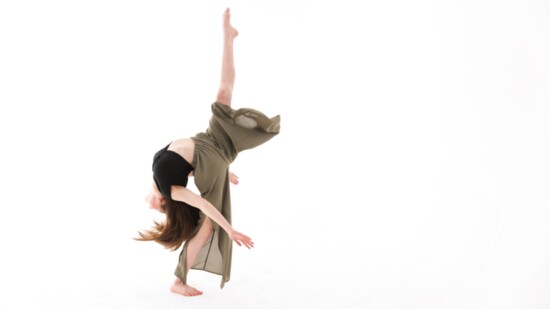Motion Dance Studio believes balance is more than a fundamental skill for dance; it’s a fundamental skill for life, and that's what makes Motion different.
What does that mean? Motion doesn’t want dance to be the only activity in which its students participate. It means that passion is more important than perfection, and artistry is more important than rigor.
Motion was founded in 2018 by Helen Estrella and Summer DuBois as a performance studio that prioritizes a supportive and collaborative environment over competition. Both grew up in competitive dance and gymnastics and share a perspective about what dance education should be and what they didn’t like from their youth experiences. They built a studio focused on performance quality and a collaborative passion for dance, fostering a unified environment.
“Every student has the opportunity to shine, have their ‘moment’ in the front, and also support from the back,” DuBois says. “With so much division in the world, our mission is to create well-rounded, kind humans with a lifelong love of dance.”
Primarily a contemporary, modern, and jazz studio, Motion offers multiple opportunities to perform each year. These include a Nuggets game performance and bi-annual trips to Disney World. They tailor a dancer’s time commitment based on their interest and availability. Fully committed dancers can compete in solo, duet, and trios at conventions. Part-time company dancers dial their commitment up or down based on outside activities, like high school cheer or other competitive sports.
“In competitive sports, on average, (a student’s) career is ten years. If a child starts at five, they can burn out by age 15,” Dubois notes. “We pace our students to avoid (this). If students wish to commit fully to dance when they are older and can make that decision, we are in it for the marathon.”
Motion also offers additional training for those considering dance beyond high school. These dancers learn about choreography and dance for film, which is significantly different from dancing on stage.
“Successful competitive dancers don't always translate to a successful professional dance career,” Estrella, a professional dancer herself, notes. “Competition focuses very narrowly and heavily on technique. Professional dance requires the ability to connect with the audience; dancers who are performative, can communicate the artistry. All of which comes from within.”
The Production, their marque performance each year, tells a story in a series of dance scenes, much like a musical. Estrella creates these shows from the ground up, from sourcing the music to choreography and costuming. Instead of finding a dancer to fit a part, she casts parts around the strengths of the elite company dancers.
Katie Kelly, mom of two Motion dancers, says, “They love the diversity of opportunities they get throughout the year…be it Nuggets, conventions, The Production, etc.” Kelly says, “They have become very close friends. Motion fosters that because they don’t have exclusive competitive teams. Dancers intermix in age and level, in classes and performances.”
DuBois and Estrella hope to inspire a lifelong love of dance and kind, contributing members of society.
